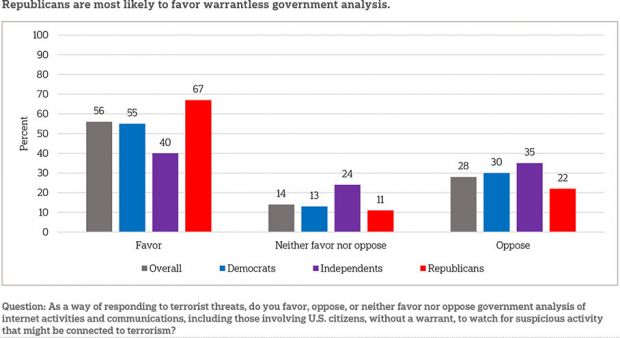A report from the Associated Press-NORC Center for Public Affairs Research shows that most Americans are OK with the idea of warrantless Internet surveillance tactics.
The survey asked 1,042 Americans a number of questions regarding various civil rights, in the light of the recent terror attacks in both the US and abroad.
According to the study, 56% of respondents would be in favor of allowing the government to carry out warrantless Internet surveillance with the purpose of catching "bad guys." Only 28% of respondents opposed this idea while 28% were undecided.
Out of all the survey respondents under 30, only a third supported the idea of warrantless Internet surveillance. In contrast, two-thirds of Americans over the age of 30 supported the idea.
The country's current sentiment towards this issue was also found in the answers to another question, where 54% of Americans said it was "necessary" to sacrifice freedoms to fight terrorism.
On the other hand, 45% of respondents opposed this train of thought, with only 1% of respondents being undecided.
Additionally, men were more likely to oppose the idea, along with Independent voters. On the other side, both Republican and Democrat voters were generally in line with giving the government more access to their online activity.
Besides Internet freedom, the AP-NORC study also includes various other opinions regarding religion freedom, security, and civil liberties.

 14 DAY TRIAL //
14 DAY TRIAL // 

